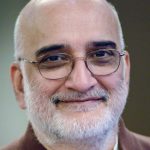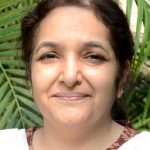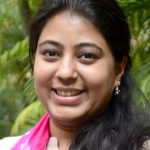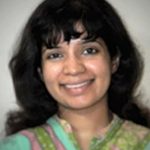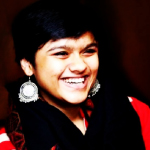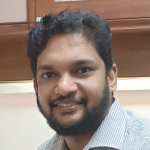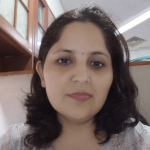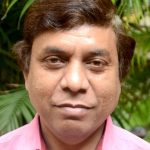Rajiv Mehrotra (Trustee-Secretary) has been a student of His Holiness for forty years. He travelled with His Holiness for the Nobel Peace Prize ceremony and helped establish the Foundation with the prize money. He serves as its Secretary & Trustee.
He was educated at St Stephen’s College and the Universities of Oxford and Columbia. He has authored nine books that have been published in more than 50 editions and languages. These include Mind of The Guru, Thakur – A Biography of Sri Ramakrishna and The Essential Dalai Lama. As an independent documentary filmmaker, commissioning editor and producer, Rajiv Mehrotra has won 32 National Awards in 34 years from the President of India. He serves as the Managing Trustee of the Public Service Broadcasting Trust, which has won more than 300 awards worldwide from over 1,700 film festival selections. For decades, he was a familiar face as an anchor on public television in India. He was nominated a Global Leader for Tomorrow by The World Economic Forum at Davos where he twice addressed plenary sessions. He is frequently invited to talk about His Holiness, Buddhism, inter-faith harmony and issues related to the media. Rajiv Mehrotra has served on numerous Committees and Boards and was a Judge for the Templeton Prize for Religion.
Meenakshi Gopinath (Founder-Director, WISCOMP Initiative) founded and leads the WISCOMP initiative of the Foundation as its Director, at the urging of His Holiness.
She is the Chairperson of the prestigious think-tank, the Centre for Policy Research and serves on numerous Boards, including the United Nations University for Peace in Costa Rica, the Geneva-based Non-Violent Peace Force, the Asian University for Women in Bangladesh, as well as several other University boards. She was the first woman member of the National Security Advisory Board in India and served on the Board of the University Grants Commission. For 26 years, Dr. Gopinath was also the Principal of Lady Shri Ram College for Women, Delhi – consistently rated the best undergraduate arts college in India.
She has won numerous honours including the Padma Shri from the President of India for her contributions to Education and an Honorary PhD from La Trobe University in Melbourne. She was a Fulbright Scholar at Georgetown University, Washington DC. Dr. Gopinath has written and lectured across the world on issues of Conflict Transformation, Peacebuilding, Women’s Leadership, Education for Peace, International Relations and Diplomacy. She has authored ‘Pakistan in Transition’ and numerous books, monographs and publications. She is the commissioning editor of the 6 volume series ‘Revisioning and Engendering Security’ and has contributed chapters to edited volumes and several articles on issues of Gandhian thought, Security, Gender, Peacebuilding and Indian politics.
Seema Kakran (Deputy Director, WISCOMP Initiative) taught Political Science and International Relations at the University of Nebraska–Lincoln, USA and in Delhi where she did pre-doctoral work. She has taught at the colleges of Delhi University and holds M.Phil and Masters’ degrees in Political Science from Jawaharlal Nehru University and University of Delhi. Her research focuses on gender equality and socio-political conflicts in India.
She has over two decades of experience of designing gender training and conducting research on issues of inclusion and diversity and is trained in Evaluation Methodologies and Public Policy Analysis. At the Foundation, Seema works on public policy issues and social justice embedded in values of justice, equality, gender and democracy. She also offers administrative leadership and support to its programmes.
Lakshmi Menon Bhatia is a visionary leader and change-maker with over 3 decades of experience in the space of Sustainability, Business & Human Rights, Peace Building and the Interfaith dialogue space. She worked for a decade and a half at GAP Inc., where she spearheaded global initiatives on creating ethical supply chain models and eventually became Gap Inc.’s Global Director for Strategy & Partnerships.
Currently, Lakshmi is a Senior Consultant with the Foundation of Universal Responsibility managing various aspects of Programme outreach for the Foundation. She is also a visiting Faculty at IIM- Bodh Gaya since 2021, where she is an advocate for integrating Compassion & Mindfulness into business practices, inspiring the next generation of leaders to create ethical and compassionate enterprises.
Lakshmi believes in sustainable and impactful collaborations to get stakeholders to build structures and shift paradigms to create a more equitable and peaceful world.
She is herself a spiritual seeker and has also done work in the Interfaith space since more than a decade, bringing together Spiritual leaders and luminaries across various religious traditions to spread the message of Unity & Oneness. She has been curating multicultural events including for Gandhiji’s & Sri Aurobindo’s 150th Birthdays to help connect their messages with the current generation.
She works closely in the Music, performing Arts & Crafts space curating cultural events that speak to the Soul.
Lakshmi holds a Masters in Social Work from the University of Delhi and is also a trained therapist, who has been a Counsellor in the schools and colleges of Delhi since the mid 90’s.
Dr. Tenzin Sonam (Senior Research Fellow) oversees the Dalai Lama Fellowships. His responsibilities include conducting independent research, supervising The Dalai Lama Chairs and Fellowships, and organizing programs and initiatives aligned with the foundation’s mission. Dr. Tenzin Sonam has completed his PhD, M.Phil, M.A., and B.Sc., all from the University of Delhi. During his M.A., he was awarded the University Gold Medal by Delhi University in the presence of the President of India. His PhD thesis titled “Buchen Tradition of the Fourteenth Century: A Study of its REmaining Remnants in Spiti.” He previously worked as a Research Assistant at CIHT, Varanasi. His early education, from kindergarten through 12th grade, was at TCV School. Dr. Sonam has published four research papers in UGC peer-reviewed journals, which include: “Disciples of a Saint Engineer (Buchen Tradition of Spiti),” “Guru Padmasambhava and the Nyingma School of Tibetan Buddhism,” “Socio-Economic Study of the Buddhist Community in Spiti Valley,” and “A Historical Study of the Spiti Valley: Tracing the Footprints of Tibetan Buddhism and its Early Dissemination.”
Tenzin Legmon (Senior Program Manager) manages the diverse programs of the Foundation focussed on nurturing universal ethics, compassion, and social responsibility. Previously, he served as Assistant Program Coordinator and Nalanda Courses Coordinator at Tibet House, the Cultural Centre of His Holiness the Dalai Lama in New Delhi. Earlier, he taught science to students of Tibetan Children’s Village, Chauntra and Tibetan Homes School, Rajpur for over five years. Legmon had also worked as an India-Manager cum Product Developer of a London-based Tibetan start-up for about two years.He completed Bachelors’ and Masters’ degrees from Madras Christian College, Chennai. He also pursued a Bachelors’ degree in Education (B.Ed) from the Central Institute of Higher Tibetan Studies (CIHTS).
Shilpi Shabdita (Programme Officer) works on programmes on gender, education for peace and conflict transformation at the Foundation. Previously, she worked at Heartland Alliance, USA on migration issues, and consulted with Afghans for Progressive Thinking, Afghanistan on youth-led dialogue initiatives.
She worked in Uganda at Justice and Reconciliation Project, where she collated a ‘Community Memory Book’ documenting war memories and justice needs of former combatants and survivors of war; led campaigns for families of disappeared persons; and authored reports on regional reconciliation.
Shilpi holds a Masters’ degree in International Peace Studies from University of Notre Dame, USA and a Diploma in Conflict Transformation and Peacebuilding from Lady Shri Ram College for Women, University of Delhi.
Diksha Poddar (Consultant) leads the Foundation’s media outreach and communications and supports research and implementation of its programmes. An MPhil in South Asian Studies, she is pursuing a doctorate from the School of International Studies, Jawaharlal Nehru University, researching the processes of alternative narrativization on youth and peacebuilding in Kashmir. Diksha’s research interests lie at the intersection of youth, creative arts, peacebuilding, and development.
Manjri Sewak (Sabbatical) managed the Conflict Transformation Program of the Foundation. She has conducted research and led training on a variety of subjects including compassion and universal values, conflict resolution, multi-track diplomacy, justice and reconciliation, women’s roles in peacebuilding etc. She developed the curriculum for a post-graduate Diploma in Conflict Transformation and Peacebuilding at LSR.
She won the RCSS-NTI (Regional Centre for Strategic Studies- Nuclear Threat Initiative, Colombo) Research Award and the Fulbright Conflict Resolution Scholarship. Manjri is currently on sabbatical working on a PhD in Education for Peace at Jamia Millia Islamia.
Akashleena Chakrabarti is a Program Associate at the Foundation’s WISCOMP initiative where she curates sessions for the virtual Book Café series and facilitates interactive spaces of dialogue for young scholars, academicians and practitioners. Akashleena also coordinates the Foundation’s flagship Academic Fellowships, liaising with Professor Krishna Menon and the senior scholars and academics who are awarded grants for their research. She holds a Bachelors’ degree in Political Science and a Diploma in Conflict Transformation and Peace Building from Lady Shri Ram College for Women, and a Masters’ degree in Political Science from the University of Delhi. Akashleena’s research interests lie at the intersection of political theory, pedagogy and performance studies.

